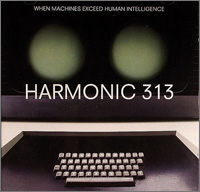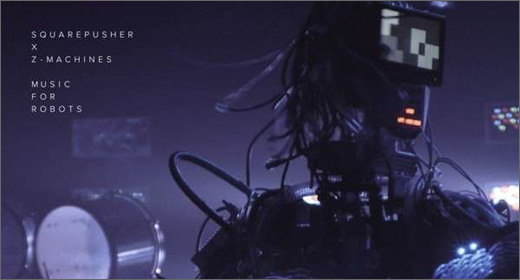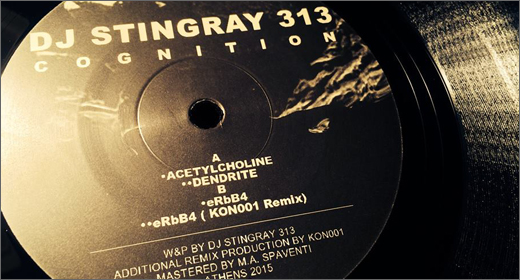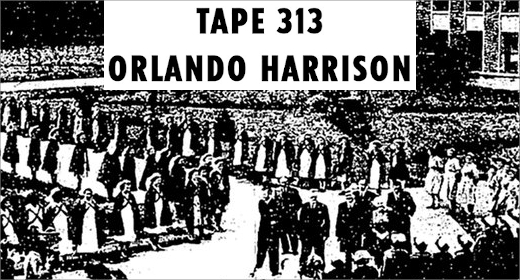
(03.31.09) Global Communications’ resident wizard Mark Pritchard (Tom Middleton is GC’s resident sorcerer) returns to us with a new album from a new alias (a shout out to Detroit and a play on one of the man’s many aliases, Harmonic 33). The H33 project started as a lounge/exotica electronic project (and put out a couple of excellent EPs on Alphabet Zoo), morphed into a disappointing turn towards music concrete for one record on Warp (Music For Film, Television, and Radio), and now, with a slight number change, brings some serious funk to the decks. Only one problem — he’s forgotten his roots, and in the attempt to forge ahead, Pritchard has left behind his superb melodic sensibilities, or at least let his love of hip hop subsume them.
When Machines Exceed Human Intelligence finds Pritchard exploring Detroit-style hiphop, a genre I am largely ignorant of, on purpose. While Detroit may be the revered “home” of techno, the best electronic music is largely produced elsewhere. And if there is a hip hop scene in Detroit beyond Eminem, I don’t have anywhere near the desire to earn the bona fides to speak about it with any authority. As such, the only approach that can be made to WHEMI is that of an outsider.
But I am armed with a knowledge of Mark Pritchard’s previous work, work that I hold near and dear. I’m a Global Communications fanatic. I am one of those people that really does buy anything that has either Pritchard or Middleton’s name on it. And I love 95% of it. This is the 5%. But why? What is it about this record that just does not resonate with me? I’ve been wrestling with this question for quite a while and still don’t really have an answer beyond the idea that it just doesn’t move me. The lush symphonics of GC (even their late-period house material), the dnb of Chaos & Julia Set, the blasted ambience of Pulusha, the Chicago-style house of Cosmos all get me going. Harmonic 313 though seems to sacrifice the melody for the funk, and it makes me tune out. But I can’t give up on this record, because there are some real gems in the rough. There is almost too much chaff that needs to be cut through to get to the wheat that I can’t be enthusiastic about this project.
I won’t do a track-by-track breakdown (boring), but here’s what I’m talking about. Opener “Dirtbox” consists of an 8-bit descending bassline with no groove to it all, video game noises placed counterpoint to the “melody” and some sparse raga toasting. That’s it. At 4:29, it is too long. Maybe on a system with huge subs this would rock the place, but from where I sit, it just sounds like poorly mastered rumbling. “Cyclotron” follows with a hip-hop-by-numbers 4/4 beat and the laziest of basslines, with a modicum of fat synths on top. Maybe this would be better with an MC over it. I’m reminded, listening to it again, of the Dr. Octogon instrumental record from 1996: kind of neat, but incomplete. And Pritchard stretches this “track” again to the 4:30 mark, outstaying its welcome by at least half. “No Way Out” follows in the same vein. It’s almost like Pritchard wanted to create an album of DJ tools, specifically for anonymous Myspace MCs to use as sample fodder. And if that was the intent, then he succeeded.
The more I write about this record the less I like it. The more I think about this record the less I like writing about it. Mark Pritchard is one of my heroes, who until this record, had really not done any wrong. But this album just seems unfinished and not up to the standards that he set for the first 16 years of his career. Sorry to say this, but Harmonic 313 is failing like the town it seems to honor.
When Machines Exceed Human Intelligence is out now on Warp. [Purchase / Listen]























![Luke’s Anger :: Ceiling Walker EP (Love Love) — [concise]](https://igloomag.com/wp/wp-content/uploads/2025/04/lukes-anger-ceiling-walker-vinyl_feat-75x75.jpg)


